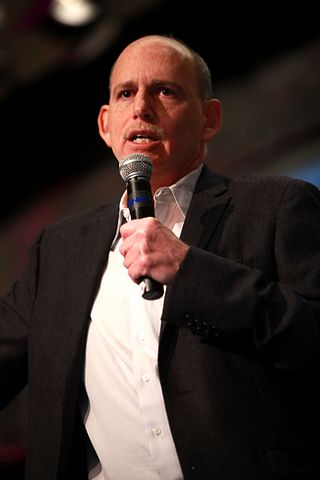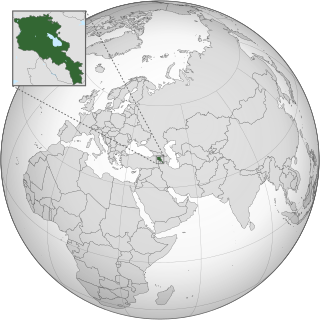 Location of Kyrgyzstan (dark green) | |
| Medicinal | Illegal |
|---|---|
| Recreational | Illegal |
Cannabis in Kyrgyzstan is illegal, but has a long history in the nation, which has been posited as the ancestral homeland of the cannabis plant. [1] [2]
 Location of Kyrgyzstan (dark green) | |
| Medicinal | Illegal |
|---|---|
| Recreational | Illegal |
Cannabis in Kyrgyzstan is illegal, but has a long history in the nation, which has been posited as the ancestral homeland of the cannabis plant. [1] [2]
In the 1990s, Felix Kulov, Vice President and later Prime Minister of Kyrgyzstan, proposed state control of cannabis fields in Kyrgyzstan to control the drug trade. [3]
In 2014, narcologist and former presidential candidate Jenishbek Nazaraliev proposed legalizing cannabis to reduce drug addiction, gain tax revenue, and undercut organized crime. [3]
In 2017, Deputy Prime Minister Tolkunbek Abdygulov suggested legalizing cannabis to improve tourism in the country. [4]

A victimless crime is an illegal act that typically either directly involves only the perpetrator or occurs between consenting adults. Because it is consensual in nature, whether there involves a victim is a matter of debate. Definitions of victimless crimes vary in different parts of the world and different law systems, but usually include possession of any illegal contraband, recreational drug use, prostitution and prohibited sexual behavior between consenting adults, assisted suicide, and smuggling among other similar infractions.

The prohibition of drugs through sumptuary legislation or religious law is a common means of attempting to prevent the recreational use of certain intoxicating substances.

The legality of cannabis for medical and recreational use varies by country, in terms of its possession, distribution, and cultivation, and how it can be consumed and what medical conditions it can be used for. These policies in most countries are regulated by three United Nations treaties: the 1961 Single Convention on Narcotic Drugs, the 1971 Convention on Psychotropic Substances, and the 1988 Convention Against Illicit Traffic in Narcotic Drugs and Psychotropic Substances. Cannabis was reclassified in 2020 to a Schedule I-only drug under the Single Convention treaty, with the schedules from strictest to least being IV, I, II, and III. As a Schedule I drug under the treaty, countries can allow the medical use of cannabis but it is considered to be an addictive drug with a serious risk of abuse.
Commonly-cited arguments for and against the prohibition of drugs include the following:

Cannabis, also known as marijuana or weed among other names, is a non-chemically uniform drug from the cannabis plant. Native to Central or South Asia, the cannabis plant has been used as a drug for both recreational and entheogenic purposes and in various traditional medicines for centuries. Tetrahydrocannabinol (THC) is the main psychoactive component of cannabis, which is one of the 483 known compounds in the plant, including at least 65 other cannabinoids, such as cannabidiol (CBD). Cannabis can be used by smoking, vaporizing, within food, or as an extract.

Ethan A. Nadelmann is the founder of the Drug Policy Alliance, a New York City-based non-profit organization working to end the War on Drugs. He is a supporter of the legalization of marijuana in America.
A drug policy is the policy regarding the control and regulation of psychoactive substances, particularly those that are addictive or cause physical and mental dependence. While drug policies are generally implemented by governments, entities at all levels may have specific policies related to drugs.

Drug liberalization is a drug policy process of decriminalizing, legalizing, or repealing laws that prohibit the production, possession, sale, or use of prohibited drugs. Variations of drug liberalization include drug legalization, drug relegalization, and drug decriminalization. Proponents of drug liberalization may favor a regulatory regime for the production, marketing, and distribution of some or all currently illegal drugs in a manner analogous to that for alcohol, caffeine and tobacco.

Cannabis in India has been known to be used at least as early as 2000 BCE. In Indian society, common terms for cannabis preparations include charas (resin), ganja (flower), and bhang, with Indian drinks such as bhang lassi and bhang thandai made from bhang being one of the most common legal uses.

Cannabis had been illegal in Morocco since the nation's independence in 1956, reaffirmed by a total ban on drugs in 1974, but was partially tolerated in the country. Cannabis has been cultivated in Morocco for centuries and the country is currently among the world's top producers of hashish. As of 2024, Morocco was the world's top supplier of cannabis. On May 26, 2021, the Moroccan parliament voted to legalize the use of cannabis for medical, as well as cosmetic and industrial purposes.

Cannabis in Denmark is illegal for recreational use, but medical use is allowed through a four-year pilot program initiated in January 2018.
Cannabis in Luxembourg is legal for recreational and medical use for adults under specific circumstances. A bill was passed in the country's parliament June 2023 to legalise the following for adults in Luxembourg: recreational possession, home-use of cannabis, and growing up to four cannabis plants per household. The law took effect on 21 July 2023.

Cannabis in Slovakia is illegal for all purposes and possession of even small amounts of the drug can lead to lengthy prison terms. Possession or use of small amounts of cannabis is punishable by up to eight years in prison. In April 2012, The Wall Street Journal reported that Robert Fico, the incoming Slovak prime minister, might push for partial legalisation of cannabis possession, and has argued for the legalisation of possession of up to three doses of cannabis for personal use.
The list includes and details significant events that occurred in the global history of national-level implementations of, or changes made to, laws surrounding the use, sale, or production of the psychoactive drug cannabis.

Cannabis is legal for medical and industrial purposes in Albania.

Cannabis in Armenia is illegal for all uses.

The Cannabis Act (C-45) of June, 2018 paved the way for the legalization of cannabis in Canada on 17 October 2018. Police and prosecution services in all Canadian jurisdictions are currently capable of pursuing criminal charges for cannabis marketing without a licence issued by Health Canada. The Supreme Court of Canada has held that the federal Parliament has the power to criminalize the possession of cannabis and that doing so does not infringe upon the Canadian Charter of Rights and Freedoms. The Ontario Court of Appeal and the Superior Court of Ontario have, however, held that the absence of a statutory provision for medical marijuana is unconstitutional, and to that extent the federal law is of no force and/or effect if a prescription is obtained. The recreational use of cannabis has been legalized by the federal government, and took effect on 17 October 2018.
Cannabis in Mozambique is illegal; the drug is locally referred to as suruma.
Cannabis in the Democratic Republic of the Congo is legal for industrial, medicinal and scientific use. It continues to be illegal for recreational use.
Cannabis in Saint Kitts and Nevis is illegal but decriminalized. Cannabis is grown on the islands for local consumption, previously in the mountainous interior for the most part, but more recently in abandoned sugar cane fields as well.